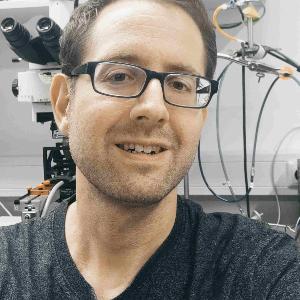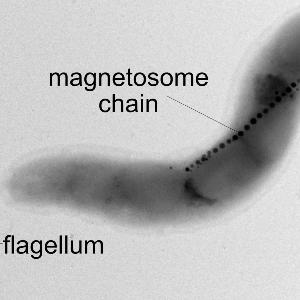
Daniel Pfeiffer, scientist at the University of Bayreuth
Before our summer break, Daniel Pfeiffer from the University of Bayreuth shares his findings about "Magnetic Navigation in Bacteria" with us.
We ask external seminar guests to register for the seminar using the following link. You will receive the link to the Zoom room on the morning of the seminar to the registered email address.
If you are generally interested in all editions of the seminar series, you can also subscribe to the priority program's information mailing list. You will receive links to the seminar lectures directly via the mailing list.
Subscribe to the information mailinglist
Members of the priority program do not have to register, but will receive the link via our mailing list.
Magnetic Navigation in Bacteria

Abstract
Life has evolved in the presence of the Earth's magnetic field. While it is well established that many organisms use the geomagnetic field for navigation, it is unknown how they adapt to reversals and changes in the intensity of the Earth's magnetic field, and whether these changes may trigger evolutionary processes. The most ancient, simplest, and best-studied magnetosensitive organisms are magnetotactic bacteria (MTB). They are also the only organisms for which the magnetic sensor has been unambiguously identified as highly ordered chains of intracellular magnetic crystals, known as magnetosomes. These unique organelles guide the swimming motility of MTB along geomagnetic field lines, facilitating navigation towards their preferred suboxic habitats within chemically stratified aquatic environments. This presentation will cover various aspects of bacterial magnetic navigation, including the diversity and behavioral responses of MTB, their relevance within the DeepDyn priority program, the related molecular mechanisms of bacterial magneto-aerotaxis, and the underlying genetic repertoire subjected to selective pressure by variations in the geomagnetic field.
Link zum Projekt
More information about the project of Daniel Pfeiffer
Link zum nächsten Seminarvortrag
with Karen Appel
